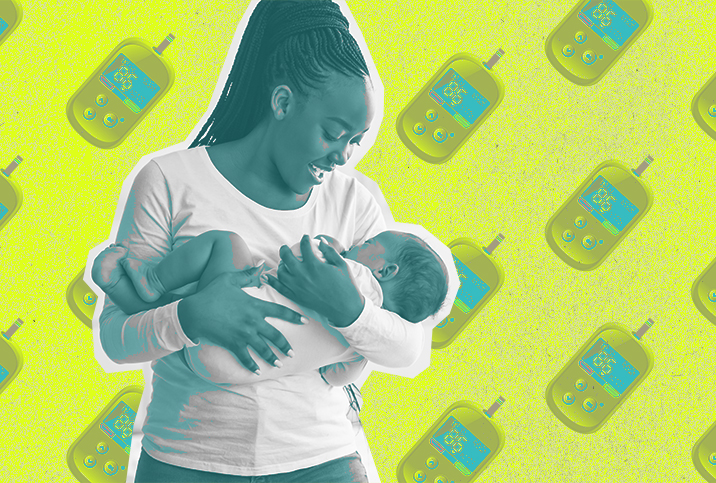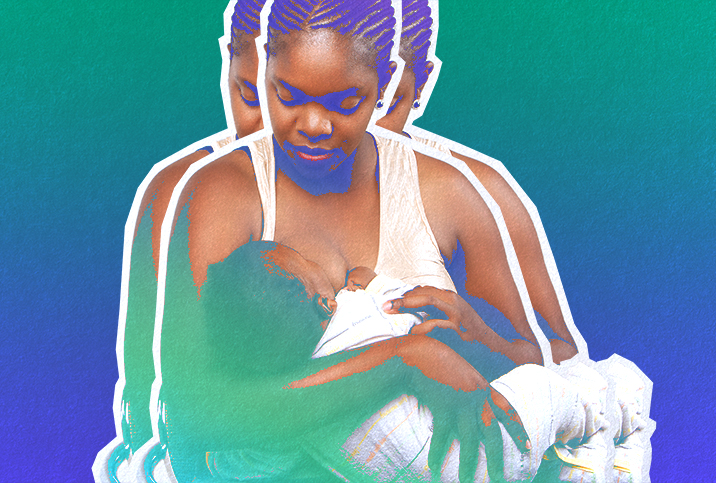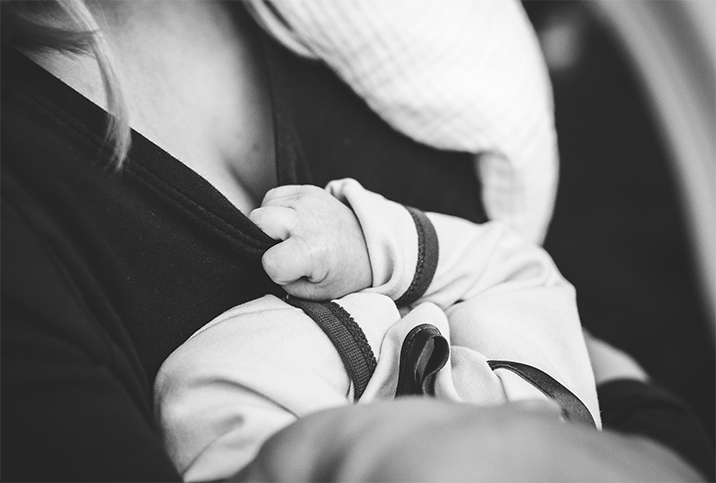Breastfeeding With Diabetes Is Possible

Figuring out how to breastfeed when you have diabetes can be a challenge, but with the right management techniques and support, it is possible and can even have positive effects on mother and baby.
There are three types of diabetes that can affect the feeding parent: type 1, type 2 and gestational diabetes, which occurs when your body can't make enough insulin during pregnancy. Gestational diabetes should stop once the baby is born, so your healthcare team will check your blood sugar levels and advise you on that before discharging you.
A study by the National Institutes of Health (NIH) indicated that the longer a woman with gestational diabetes breastfeeds, the lower her future risk of developing type 2 diabetes. Researchers also suggested that babies who were breastfed had a lower incidence of type 1 diabetes, according to a large 2017 study published in the journal Diabetes Care.
Advice for breastfeeding with diabetes
While breastfeeding can be more challenging when you have diabetes, there is no reason you shouldn't do it, said Elys Perez, M.D., an endocrinologist with Broward Health, based in Fort Lauderdale, Florida. The health benefits of breastfeeding remain the same, whether you have diabetes or not. These benefits include a lower risk of developing high blood pressure, breast cancer, ovarian cancer and osteoporosis later in life.
Perez's advice is to check with a doctor about which medications are safe to continue while breastfeeding. The American Diabetes Association provides reassurance about the safety of many medications, including the commonly used insulin and metformin. Another helpful reference is LactMed, a drugs and lactation database hosted by the National Library of Medicine. Here, you can look up the latest information regarding which drugs are safe while breastfeeding.
The breastfeeding parent should check her insulin levels both before and after a feeding, advised Beth Ann Martin, M.A., a certified lactation counselor for LaVie Mom in Greensboro, North Carolina. In order to stay energized and hydrated, Martin's recommendation is to keep snacks and drinks in the places around your home where you nurse or pump.
Perez agreed that insulin may need to be adjusted before and after breastfeeding because it is similar to exercise in that both activities can cause glucose to decrease.
"It is also imperative to maintain well-hydrated and perhaps eat a snack before breastfeeding to prevent undesired drops in glucose," she added.
Mothers lose about 50 grams of carbohydrates each time they feed their baby, according to the United Kingdom's National Health Service (NHS). It's important to work with your healthcare team to figure out how many extra carbohydrates you will need while breastfeeding.
Breastfeeding can also positively affect blood sugar levels by increasing insulin sensitivity, explained Ruth Hale, an international board-certified lactation consultant and a certified doula at Birth to Breast in San Diego.
"Parents with type 2 diabetes tend to have low insulin sensitivity and those with type 1 diabetes have low insulin," she said.
This improved insulin sensitivity can mean blood sugar is better controlled and the amount of medicine required might be less, Hale added.
Effects on the baby
Hale explained that doctors check the fetus's size during pregnancy. Babies of moms with diabetes can be born larger. After birth, the baby's weight is monitored for high weight loss and their blood sugar is checked for hypoglycemia.
Diabetes can delay milk production, which usually occurs 48 to 72 hours after birth, Martin said. For people hoping to breastfeed, she recommends harvesting colostrum to bridge this gap if you have clearance from your health team. As diabetes can create a higher-risk pregnancy, health professionals sometimes advise not to express before 37 weeks in case it induces labor, she added.
If the baby is born premature and their ability to latch is affected, then Martin recommends using a tube, spoon or bottle to feed any harvested colostrum or milk.
As diabetes can create a higher-risk pregnancy, health professionals sometimes advise not to express before 37 weeks in case it induces labor.
Mothers with diabetes can experience low milk supply, so Hale recommends reaching out to your provider to check on your insulin levels to see if that is having an impact. She stressed again that it is important to look after yourself and work with your provider to keep blood sugar and insulin within the acceptable range.
However, not breastfeeding is also an option for parents who are unable to keep their blood sugar levels from going too high or low, Hale added.
Martin highlighted the importance of skin-to-skin contact (also known as kangaroo care) for one hour after birth, as it helps to regulate the baby's blood sugar levels. This bonding can also raise oxytocin levels, which in turn can aid breastfeeding.
She also emphasized that self-care is essential, so eating a nutritious diet and getting regular exercise can help you to better manage the condition. All the experts agreed that being supported is vital for breastfeeding. Being able to ask for help can make your feeding experience much more successful, as well as give you a better chance of looking after your own health.




















